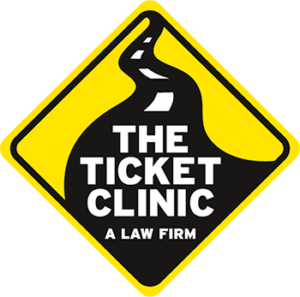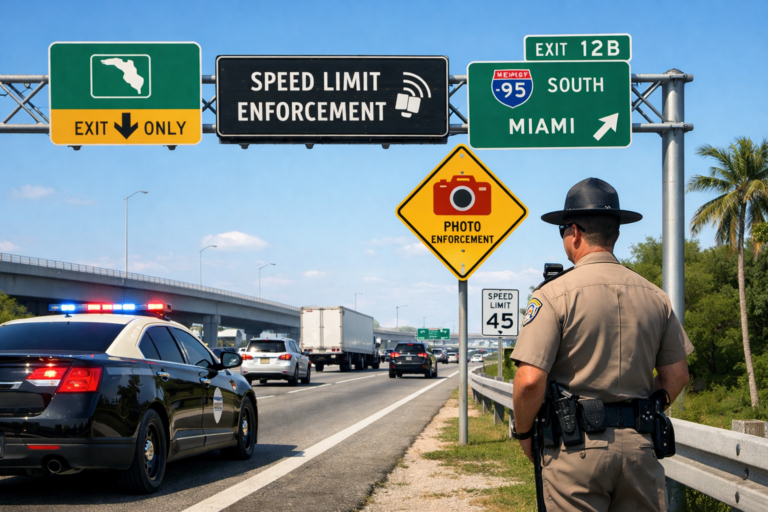October 1, 2025 brings some of the most sweeping changes to Florida’s driving, DUI, and boating laws in years. If you drive, boat, or ever face a traffic stop, these updates matter now. At The Ticket Clinic, we’ve helped thousands of clients navigate serious traffic and criminal defense issues—here’s how you should prepare.
New Stricter Penalities For DUI Test Refusals & Manslaughter: Trenton’s Law (HB 687)
What is Trenton’s Law?
House Bill 687, commonly called Trenton’s Law, is Florida’s legislative response to a fatal DUI crash involving repeat offenders. The law increases penalties for impaired driving, makes a first refusal to test a criminal offense, and enhances punishments for multiple DUI‑related fatalities.
Breath / Urine Test Refusals Become Criminal
Under the prior regime, refusing a chemical test (breath, urine, or blood) during a DUI stop was treated as an administrative or civil infraction on a first refusal, and elevated only on subsequent refusals. Trenton’s Law changes that:
-
- UNA first refusal to submit to a lawful breath or urine test will now be a second‑degree misdemeanor (which can include jail time, fines, and a criminal record).
-
- UNA second or subsequent refusal is elevated to a first‑degree misdemeanor with harsher punishments.
-
- Courts must advise the arrested person of the criminal consequences of refusal under the new law.
This shift means that even first-time DUI suspects now risk criminal charges simply by refusing to blow.
Harsher Sentences for Repeat DUI Manslaughter / Vehicular / Vessel Homicide
One of the most dramatic parts of Trenton’s Law is the escalation of penalties when a driver (or boater) with prior DUI/BUI or vehicular homicide convictions causes death:
-
- UNA second or subsequent conviction for DUI or BUI manslaughter, or vehicular homicide or vessel homicide, is now classified as a first‑degree felony (rather than second degree) with a maximum sentence of 30 years.
-
- Previously, repeat manslaughter or homicide charges under DUI would be capped at 15 years (second‑degree felony).
-
- The law also demands these offenses be ranked more severely under Florida’s Criminal Punishment Code offense severity chart.
Because of these increases, Florida courts will treat repeat DUI fatalities with far more severity.
Boating Under the Influence (BUI) / Vessel Homicide Effects
Trenton’s Law doesn’t only target cars. It extends into boating under the influence (BUI) statutes:
-
- A prior BUI or DUI conviction can now aggravate a boating manslaughter case into a first‑degree felony under the new repeat‑offender scheme.
-
- The same 30‑year maximum penalty can apply to vessel homicide or boating manslaughter under repeat offender conditions.
-
- Any refusal to submit to a chemical test during a boating stop (if treated under DUI procedures) could likewise incur criminal penalties under the new rules. (Though the law’s text focuses on “breath or urine tests subsequent to a DUI arrest,” courts may interpret BUI enforcement under similar logic.)
Existing BUI penalties (fines, jail time, vessel impoundment, community service) remain, but now with the specter of dramatically harsher consequences when death is involved or prior convictions exist.
HB 253 — More Serious Penalties for Lighting, Plate, and Registration Violations
HB 253 reclassifies and stiffens penalties for vehicle lighting modifications, license plate obscuring, and tampering with registrations. We covered these upcoming changes in a previous blog.
Highlights:
-
- Driving a vehicle with certain prohibited lighting (especially when resembling law enforcement) under some circumstances becomes a third‑degree felony.
-
- Altering or covering a license plate, or modifying registration stickers, moves from a noncriminal traffic infraction to a second‑degree misdemeanor.
-
- Possessing, manufacturing, selling, or distributing a license plate obscuring device is criminalized.
-
- Using an obscuring device during the commission of a crime or escape raises penalties further.
In effect, what used to be a minor ticket can now carry real criminal exposure. If law enforcement argues your lighting or plate modifications mimic an official vehicle, you may face felony charges.
HB 113 — Stricter Penalties for Fleeing / Eluding Law Enforcement
HB 113 changes how Florida treats fleeing or attempting to elude law enforcement during a traffic encounter.
Key changes:
-
- It reclassifies fleeing offenses upward on the Criminal Punishment Code offense severity chart (for example, basic fleeing from a Level 4 to Level 5).
-
- Aggravated fleeing (causing injury or property damage, or leaving scene) is bumped higher (e.g. from Level 5 to Level 6).
-
- It creates a sentencing multiplier: for second or subsequent fleeing convictions, sentencing points are multiplied by 1.5, increasing prison exposure.
-
- The law narrows the requirement that police vehicles be visibly marked with insignia for certain fleeing charges; even less conspicuous vehicles may now be sufficient to support pursuit charges.
Under HB 113, what may have been dismissed or downgraded in the past can now carry heavier consequences—especially for repeat offenders.
HB 479 — Restitution for Leaving the Scene of a Crash
Under the new HB 479:
-
- A person convicted of leaving the scene of a crash (involving only property damage or vehicle damage) may be ordered by the court to pay restitution for the damage.
-
- The bill takes effect October 1, 2025.
While not as sweeping as the DUI or fleeing reforms, HB 479 adds financial exposure to hit‑and‑run cases where previously restitution power may have been more constrained.
What All This Means for You
-
- UNA routine traffic stop for suspected DUI is much more dangerous now—even refusing a breath test first time may lead to criminal charges.
-
- Repeat DUI or BUI offenders face dramatically elevated risks when injury or death is involved.
-
- Modifying lights or plates is no longer trivial—it can carry felony exposure.
-
- Running from police is riskier, with harsher sentencing and fewer defenses.
-
- Leaving a crash could cost you more through restitution orders.
Effectively, Florida’s new laws shift the risk curve: more offenses that once were misdemeanors or infractions now carry real criminal weight. Law enforcement and prosecutors will likely use these tools aggressively.
Why Choose The Ticket Clinic For Criminal Traffic Defense?
For over 35 years, The Ticket Clinic has focused exclusively on traffic, DUI, and related criminal defense. In more than three decades, we’ve handled thousands of cases involving speeding, DUI, hit‑and‑run, license suspension, criminal traffic offenses, and more. Our attorneys know traffic court, criminal procedure, forensic evidence, local prosecuting patterns, and how to build defense strategies under shifting laws.
When laws change, experience matters even more. The reforms hitting October 1, 2025 raise the stakes dramatically—for clients, defense counsel, and prosecutors alike. You need a team that can:
-
- Evaluate your case quickly
-
- Spot constitutional or procedural flaws
-
- Negotiate strategically under the new legal regime
-
- Protect your record, driving privileges, and freedom
If you or someone you know faces any traffic, DUI, boating, or criminal charges in Florida after October 1, 2025, don’t wait. Contact The Ticket Clinic now for a free consultation. The cost of waiting may be far greater than you imagine.




The Ticket Clinic Team
We are the largest law firm in the United States to focus soley on traffic-related offenses and traffic tickets. Over +35 years in business, we have developed deep knowledge about traffic court procedure and traffic laws. Our goal is to help keep drivers stay informed about legal issues that could affect them on the road. In our blog content, we like to explore insights in traffic ticket trends and other related issues.



